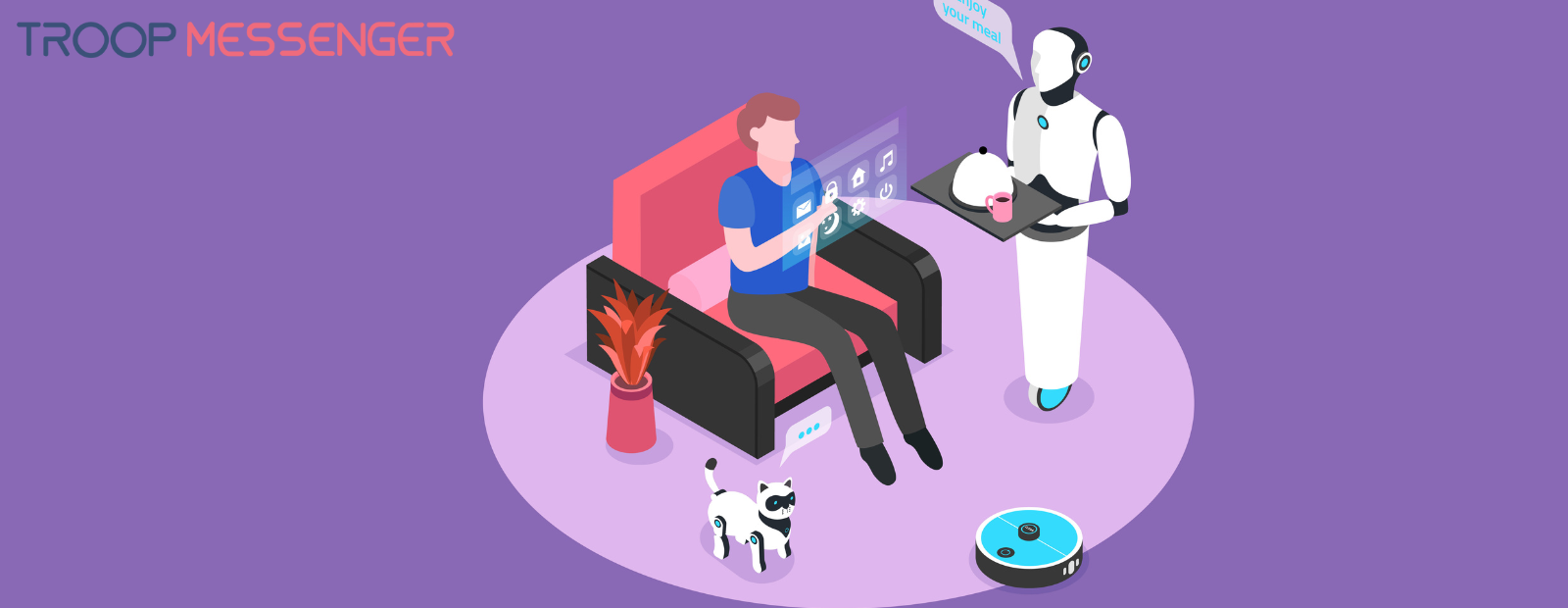Connect with us

Unified Work Communication: Leveraging Messenger Tools And ERP For Business Success
The modern online e-commerce business world is changing at such a fast pace, where achieving unified communication between messaging tools and ERP systems is becoming essential for operational efficiency and remain competitive in the digital landscape.
Messaging tools and Enterprise Resource Planning Systems (ERPs) are a great synergetic approach that you can use to improve the whole business journey (client, suppliers, and other invested external parties) in daily activities and enlighten the way they share information.
To find out more about how we can combine the power of unified communication, we’ll dive deeper into this article to learn more about ERPs, messaging tools, and how effective they are when used together.
ERP e-commerce integrations
ERP e-commerce integrations refer to the process that connects an e-commerce platform with an ERP (enterprise resource planning) system. This improves data flow and synchronization between two systems and improves data accuracy during the process.
93% of organizations report their ERP projects successful. ERP- integrated e-commerce allows you to enable real-time data syncs and promotes centralized management of customer data, inventory, and orders. There are three different types of ERP systems:
- Modular ERPs: Implement different components based on what’s required. Each module can be implemented and operated independently depending on what the business function is.
- ERP suites: Combines multiple modules in a single and integrated package that covers all business elements.
- Generalist ERPs: Automate financial management and procurement processes in the organization.
When choosing your ERP solution, you need to carefully do your research. The key factors to take into consideration when choosing which solution is right for you are:
- Cut out middleware: Your system should allow you to update your products directly to the ERP and automatically push them out to your web store. Cutting out the middleware ensures that your maintenance takes place in one system and uses fewer IT resources. This helps in reducing the Total Cost of Ownership (TCO).
- Offering 24/7 support: When customers know that they can make purchases at all times, they are more likely to use your sales channel. Any complicated customer journey will only push customers away.
- Increasing revenue opportunities: Your ERP integration solution should meet new challenges as soon as possible. Business agility is a great future strategy and ensures that your tool can keep up with it.
Last but not least, let’s talk about the resources you need to allocate for ERP-integrated e-commerce:
- Understanding What the requirements are: Establishing goals helps clarify requirements and allows you to choose the ERP software better.
- Strategic planning: Clarify what your budget is, the teams that are going to be involved, and the return on investment (ROI) you are looking for.
- Staffing and training: Staff training is important when it comes to budgeting your resource investment into the project much better
- Maintenance: ERP integration solutions should be able to cut down the time required for maintaining your online store and ERP
Overall, ERP integrations act as a main tool for long-term success because of their automated processes. It’s great for increasing sales and retaining them in the long term.
Leveraging messaging tools and their functions
Messaging tools are important when it comes to business communication. This includes instant messaging (IM) apps, group chats, and file sharing that allow efficient communication across team members.
Unified communication tools refer to the integration of multiple communication channels and tools, video, chat, email, all into a single platform. It connects customers, partners, and employees all in one place, and enlightens communication.
Most messenger tools have cross-platform accessibility features. This allows team members to communicate with each other across many different devices, regardless of where they are located. That’s not only it, but messaging tools have many benefits that contribute to your long-term business success, including:
- They are cost-efficient: Unified communication is great for reducing unnecessary costs for your business. They offer multiple communication channels and eliminate the need for using different providers.
- Improved productivity rates: Productivity rates significantly since you are using a single interface, reducing time consumption on toggling between applications. Integrated chats allow real-time collaboration and improve teamwork, reducing project completion times by a good margin.
- Scalability: This is mostly for small businesses and an advantage of unified communication tools. Scalability makes sure that the messenger communication systems can grow along with the organization and support its needs as it evolves.
- Better customer service: Customer support improves with unified communication platforms. This is done through special features like call routing, making sure that the customer is connected to the right person, reducing their waiting times, and improving customer satisfaction. The customer can also leave a voice mail if they can’t reach the personnel. Nobody wants to wait, right?
Overall, there are popular and widely used messaging tools you can use and the best part is that you can download most of these applications on your desktop, or mobile device, meaning you can communicate freely everywhere you go. Here are some widely used tools we recommend:
- Slack: One of the top unified communication platforms that are specially designed for businesses of all sizes is Slack. You have the “all-in-one” package, which includes video meetings, team messaging, and file sharing. The app is free to use and includes a paid plan that allows you to save up to more than 10,000 messages. The free plan doesn’t offer this.
- Tettra: Instead of Slack, you might have come across Tettra. It’s a real-time communication tool that is used for storing answers to all frequently asked questions. If someone asks a question, you can reply directly to that person either through the app or even on Slack. This way, you are saving time and avoiding repetitive questions asked by new hires. What a way to save time!
- SharePoint: Being a common tool for business communication, SharePoint increases efficiency by making it easier to share files, information, and resources amongst working teams. This is important when creating plans on your ERP system and sending them over on Sharepoint.
- ClickUp: Brings team communication all into one place. Businesses of all sizes can use ClickUp, and regardless of the industry you are in, you can plan, manage, and track projects while using the same platform.
Choosing the right communication tool will be your choice. You need to see which tool best fits your ERP integration requirements and what your business is aiming to accomplish.
Leveraging messaging tools and ERP
Combining both ERP integration solutions and messaging tools is considered unified communication. While ERP systems and messaging tools have their functionalities, you can send over all the internal plans, insights, project status updates, alerts, and other important information you have to your team through the messaging tool you are using.
Unified communication through messaging tools and ERP integrations brings the following benefits to your business:
- Real-time notifications: You can enable real-time notifications from ERP systems onto the messenger tools. This way, you’ll get alerts regarding order statuses, project milestones that make you deliver everything on time, and inventory levels.
- Collaborative problem-solving capabilities: ERP integration with messenger tools allows teams to send over plans they made on the ERP system, share insights, and collectively address any challenges they might be facing.
- Fast-paced decision making: Sending over ERP data to your messenger tools allows you to look at real-time information that helps teams make decisions much more effectively and quicker when required.
- Project status updates: ERP project modules can be discussed in the messenger tools, allowing team members to receive updates on timelines, resource allocations, and other important factors that contribute to the project.
Also, don’t forget to read more about the messaging tool you are using. There are some less popular apps that don’t allow integrations with ERPs. Therefore, it’s important to know before you put it to official use.
The best practices to implement when using unified communication
Firstly, it might seem like a challenge for users to be proficient in both messenger tools and ERP systems. However, it’s important that you put them through user training programs to make sure they become proficient in learning the tools your business is using.
Prolonged learning times can reduce business productivity and might negatively affect the success rate of the business.
Secondly, you need to make sure that you have the right security measures used in both messenger tools and ERP systems. Put both tools through a test and make sure that the following security measures are undertaken:
- Data encryption
- User access control
- Regular security audits for safeguarding sensitive business information
Thirdly, don’t forget about planning for scalability. As your business grows, you need to make sure that the messenger tool and ERP solution you chose will adjust accordingly to your business as it continues its growth cycle.
Lastly, you need to incorporate a feedback mechanism that makes sure the tools you are using are still fulfilling the business needs. As we mentioned before, some messenger tools are only for small businesses and if your business grows larger over time, users might not see it as an effective option anymore.
Conclusion
The synergy between messenger tools and ERP systems allows your business to create a unified collaborative working environment. This integration from both sides allows your team to collaborate more effectively and make much better decisions by using real-time insights from ERP systems.
Overall, there are many advantages that you get and all of them accumulate into improving business productivity and play a major role in the long-term success of the business.








